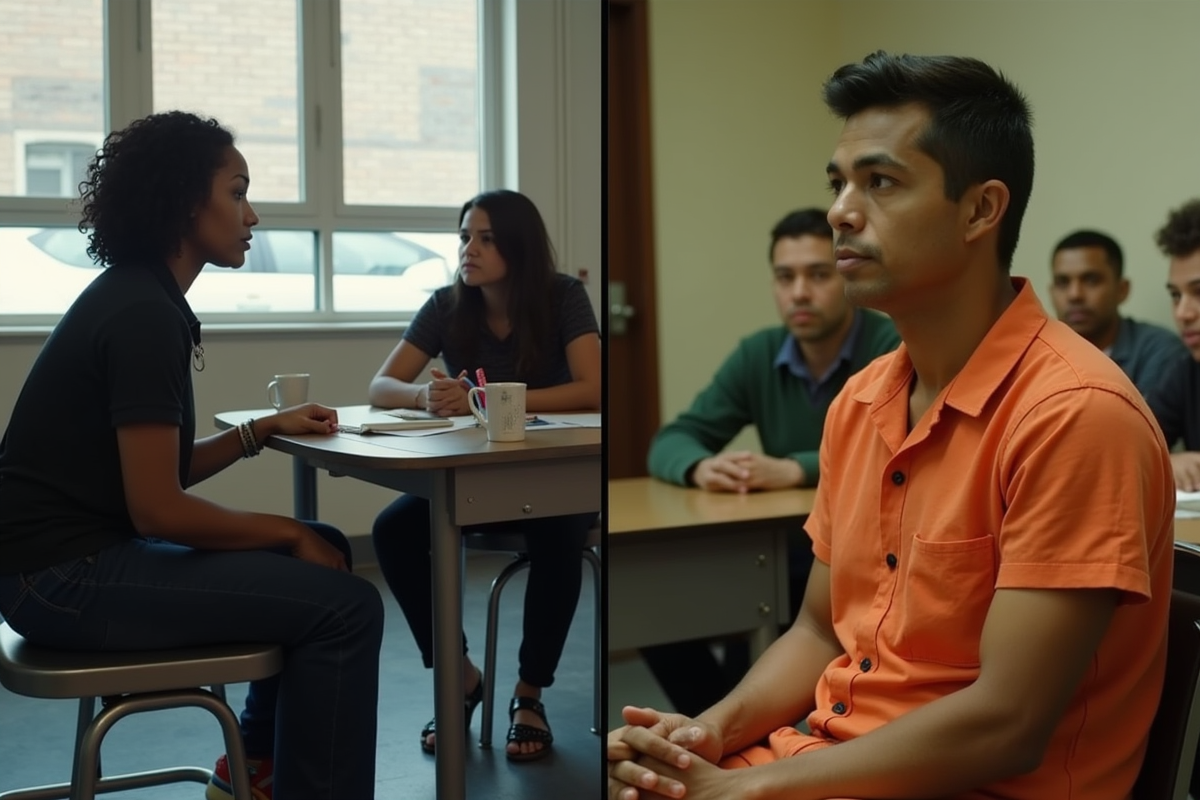
Meta Description: Recent state legislation addresses criminal justice reform through enhanced victim protections and juvenile justice updates, facing implementation challenges across 39 states.
Opening Section A wave of criminal justice reforms sweeping 39 states seeks to reconcile victim protections with systemic overhauls in juvenile justice and corrections. With 781 active bills tracked between January and February 2025, this legislative movement introduces nuanced approaches to parole guidelines, inmate conditions, and sexual violence prevention while grappling with longstanding disparities in enforcement practices.
Core Policy Objectives
Victim-Centric Reforms Bills like New York's A02290 establish witness protection protocols for hate crime victims, while Virginia's HB2763 increases penalties for repeat solicitation offenses. These measures expand victims' access to legal remedies and court accommodations, exemplified by Hawaii's HB729 raising the minimum marriage age to 18 to combat child exploitation.
Juvenile System Overhauls Connecticut's HB05330 prohibits arresting children under 14, reflecting a national trend toward developmental appropriateness. Conversely, Oklahoma's SB1109 expands circumstances for trying juveniles as adults, highlighting tensions between rehabilitation and punitive approaches.
Demographic Impacts
- Children/Youth: 48% of analyzed bills directly affect minors, with New Hampshire's HB478 establishing foster care oversight and Illinois SB0119 improving prenatal care tracking
- Marginalized Communities: Racial disparities surface in sentencing reforms like Arizona's HB2580, which increases sex offender registry requirements amid concerns about disproportionate minority impacts
- Gender Dynamics: Over 120 bills address gender-specific issues including Indiana's SB0444 creating prison nurseries and Texas SB792 refining sexual assault prosecution standards
Regional Divergences Northeastern states emphasize social services, as seen in Vermont's S0009 improving access to protective orders. Southern legislatures lean toward stricter penalties, with Mississippi's SB2048 criminalizing abortion access for minors. Western states like Hawaii and California show hybrid approaches through bills like SB1151 streamlining assisted reproduction parentage rules.
Implementation Challenges
- Resource Allocation Maryland's HB485 establishing addiction treatment programs faces funding hurdles common to 63% of rehabilitation-focused bills
- Training Requirements New York's witness protection mandate in A02290 requires updated law enforcement protocols for handling sensitive victim data
- Compliance Monitoring Oklahoma's HB1217 restrictions on adult materials necessitate new school district reporting systems
Projected Outcomes While 72% of analyzed bills show high positive impact potential for victims, risk assessments flag potential backlogs in states like Oklahoma implementing simultaneous sentencing reforms (HB2127) and court fee reductions (HB1129). The emphasis on data-driven parole decisions (Illinois SB0179) suggests long-term reductions in recidivism but requires sustained funding commitments.
Balancing Priorities The legislative landscape reveals inherent tensions between:
- Victim advocacy groups pushing for expanded rights
- Reform advocates emphasizing rehabilitation
- Budget constraints limiting program scalability
As states like New York implement maternal health programs (A02397) while Mississippi tightens abortion restrictions (SB2048), the coming years will test whether these parallel initiatives can coexist without overburdening enforcement systems.
Related Bills
Penalties increase for creating, distributing, and possessing sexually explicit materials involving children
Require suicide awareness and prevention training for employees of child-placing agencies and child welfare workers
Relates to the confidentiality and expungement of records in juvenile delinquency cases in the family court; requires certain records to be expunged automatically.
Relative to coverage of children under the state retiree insurance plan.
Provide for continuous healthy Montana kids plan eligibility for children under 6
Prohibits requiring parents or caretakers to earn a minimum wage to be eligible for child care assistance.
Requires DCYF to establish segregated savings account for foster care child receiving SS, SSI, veterans benefits or railroad retirement benefits to manage the accounts and keep child eligible for future benefits.
PRENATAL SYPHILIS-TESTING
Tools to Address Known Exploitation by Immobilizing Technological Deepfakes on Websites and Networks Act TAKE IT DOWN Act
Modifies requirements for child care reimbursement
Related Articles
You might also be interested in these articles
